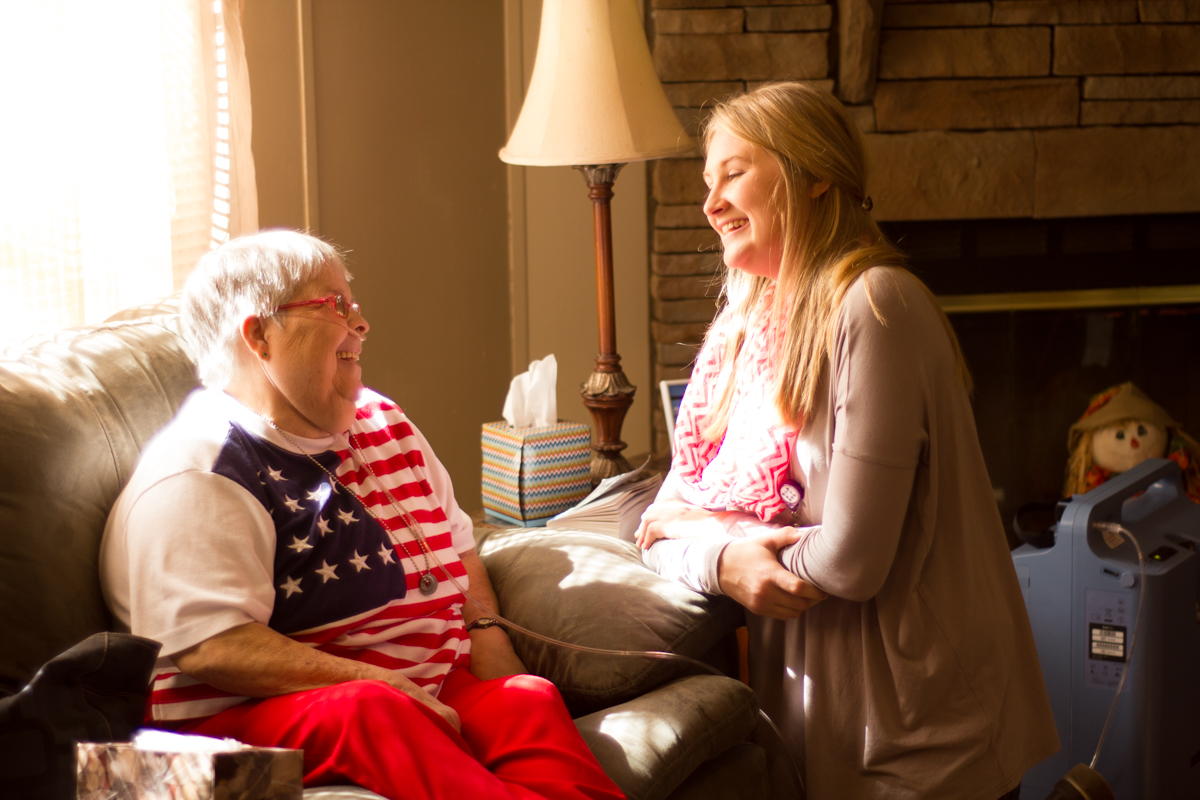University of Arkansas faculty and students, along with Washington Regional Medical Center community partners, gave a presentation entitled "A Hospital-University Partnership: Using Student Health Coaches to Improve Health Outcomes for Chronically Ill Patients," at the Gulf-South Summit on Service-Learning and Civic Engagement through Higher Education, held in Little Rock over March 11-13.
This annual conference is dedicated to promoting networking among practitioners, research, ethical practices, reciprocal campus-community partnerships, sustainable programs, and a culture of engagement and public awareness through service-learning and other forms of civic engagement. This year's conference was hosted by the University of Arkansas at Little Rock and the University of Arkansas Clinton School of Public Service.
The Health Coaches program is a new partnership between the University of Arkansas and Washington Regional Medical Center (WRMC) which provides learning opportunities for pre-professional health students and assists at-risk patients in the community through a sequence of three service-learning health coaching courses. It began as a pilot program in spring 2014 with a group of 6 students, and since has grown to see involvement of approximately 25 students. Students who are selected to enroll in the sequence of courses gain basic medical knowledge across health care disciplines in Health Coaches I through classroom lectures delivered by UofA and WRMC faculty, case studies, shadowing, and reflection.
Building on this base, students in Health Coaches II and Health Coaches III apply this knowledge in field experiences and work as part of a community care team based at Washington Regional Medical Center. Students are assigned to work with a vulnerable patient, and they help the patient and care team outline health goals. The student health coach sees the patients where they live, encouraging them to reach goals outlined in the care plan, helps with problems that could negatively affect their health, and serves as a bridge between the patient and the healthcare system. The student health coach remains in close contact with both patients and the care team throughout the Health Coaches II and III experiences. In addition to visits to assigned patients, the student health coaches meet one time per week at WRMC to discuss clinical details and reflect upon their field experiences with the health care team.
Jordyn Henry, senior premedical student health coach and member of the pilot group, explains the role of the health coach: "When a patient goes into a clinic they only get fifteen minutes with the doctor, and how can doctor get all of the knowledge they need in that short amount of time? Most of the time doctors don't get the background story, the underlying issue, or the lifestyle that their patients really live. This is where health coaches come in; we fill that gap between patients and physicians."
The advent of this program coincides nicely with recent campus initiatives to formalize service-learning on campus, a hands-on method of teaching and learning in which students complete meaningful work in the community that is integrally connected with course learning objectives, said Casey Kayser, Clinical Assistant Professor of English and the Fulbright College representative involved in the program. "Health Coaches allows our pre-professional health students to gain technical knowledge and clinical experience, while meeting genuine community needs."
Junior premedical student and health coach Cassie Walker recognizes the value of this real-world experience: "In most of my other classes on campus, I've learned from a book, but I haven't been able to apply the principles I've learned outside of a laboratory. We read a number of articles in Health Coaches I, but I learned the most about what the articles contained through being able to connect them with experiences I personally had as well as experiences the other health coaches had in the field."
Fran Hagstrom, assistant dean for health professions, who coordinates the program for the College of Education and Health Professions, said, "Dr. Mark Thomas, who leads Washington Regional Palliative Care, reached out to Provost Gaber with a vision for this joint service-learning opportunity. Faculty from Fulbright and COEHP eagerly accepted the challenge of establishing the Health Coaches program to fill an experiential need for pre-health professions students across the campus. As we enter the program's second year, we see that Dr. Thomas, his staff, and patients who agree to work with a student health coach are changing the future of health care one student at a time. It is an investment we all value."
Several other faculty and representatives from the newly established Service Learning Committee also attended the Gulf South Summit conference and look forward to sharing information about service-learning models and best practices with the campus community.
Topics
Contacts
Casey Kayser, clinical assistant professor
English
479-575-2512,
